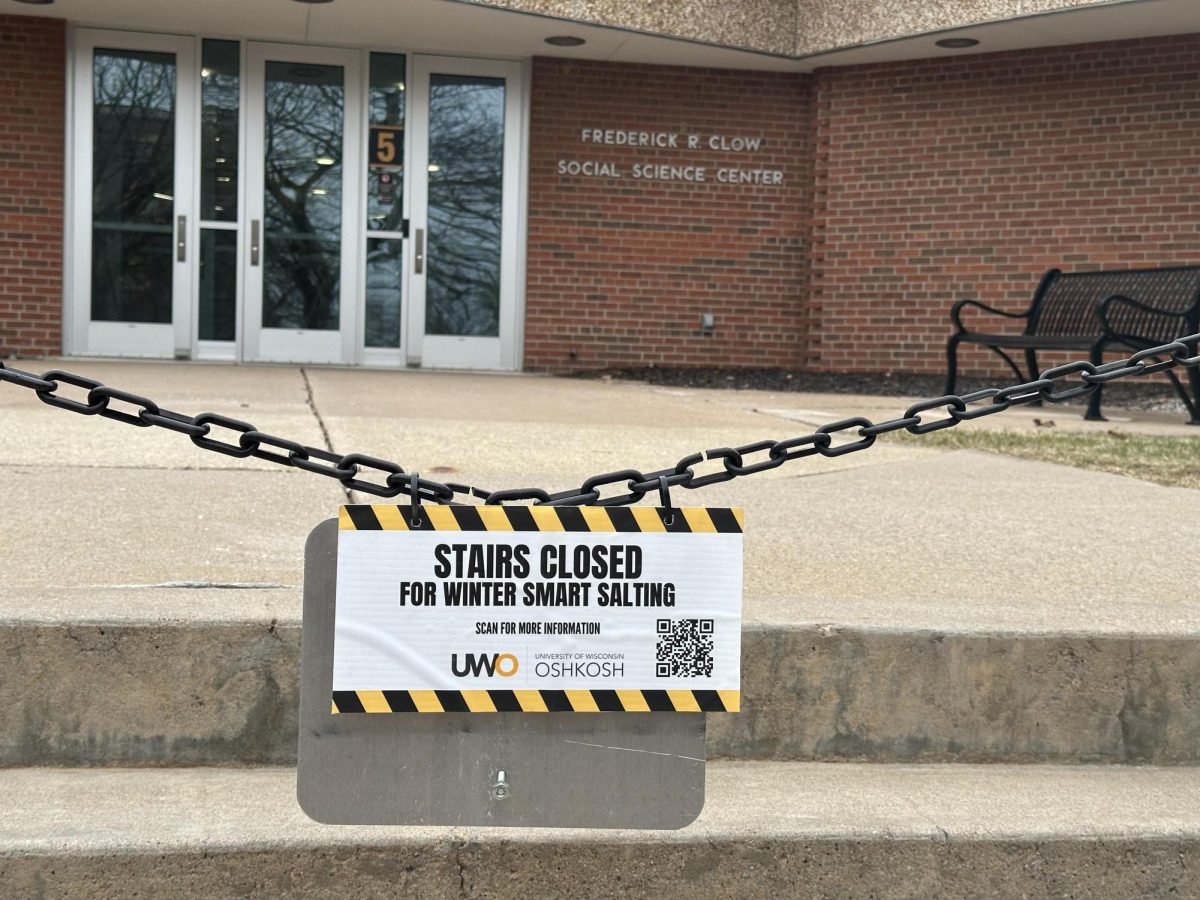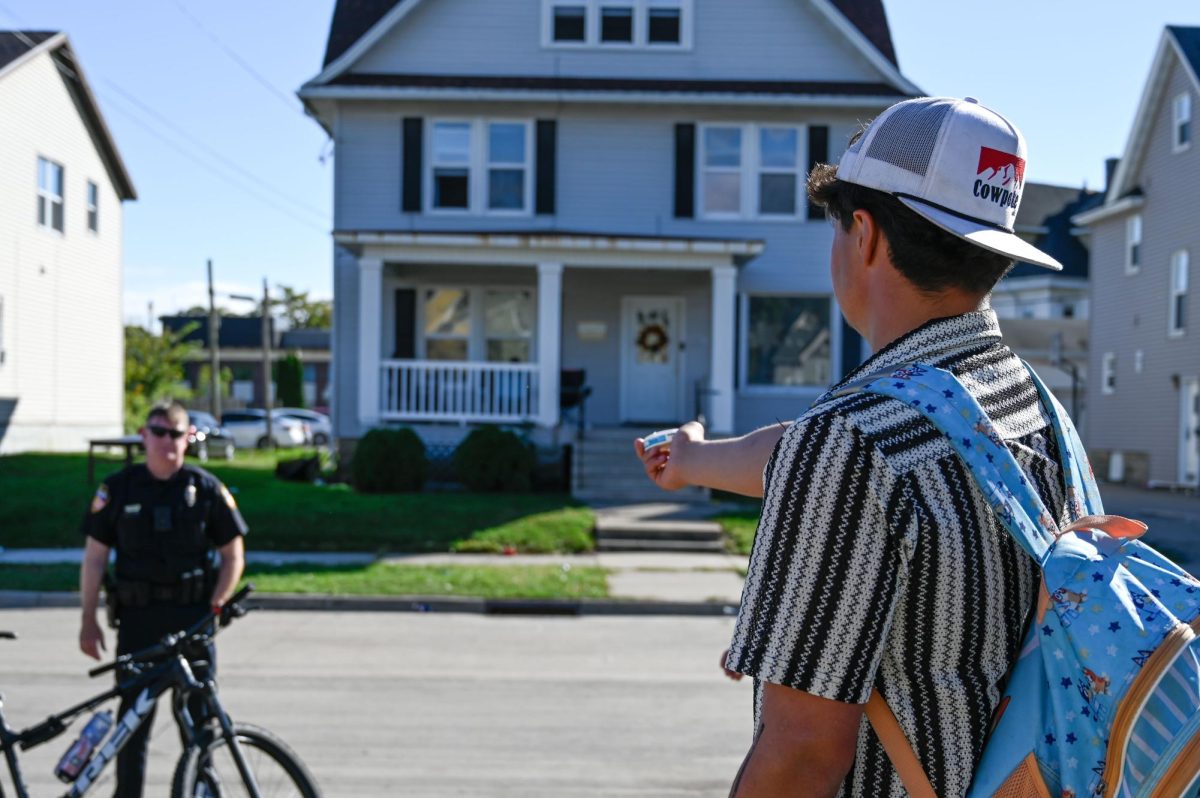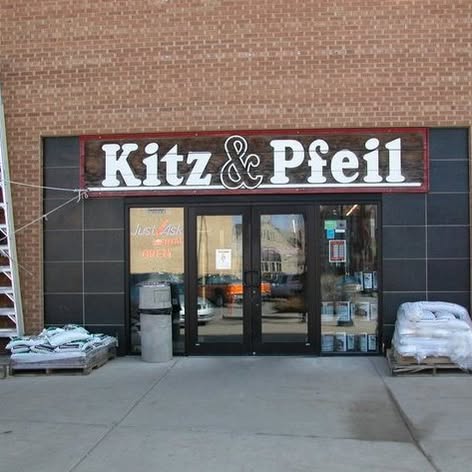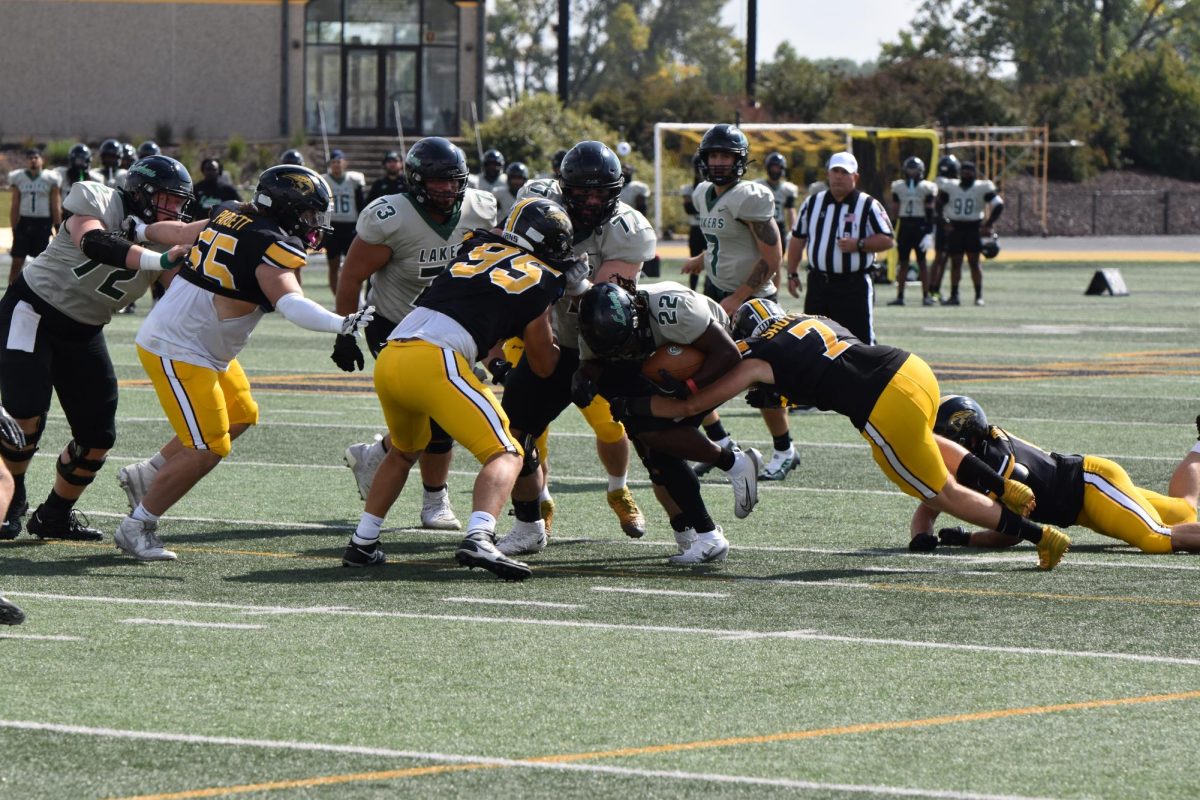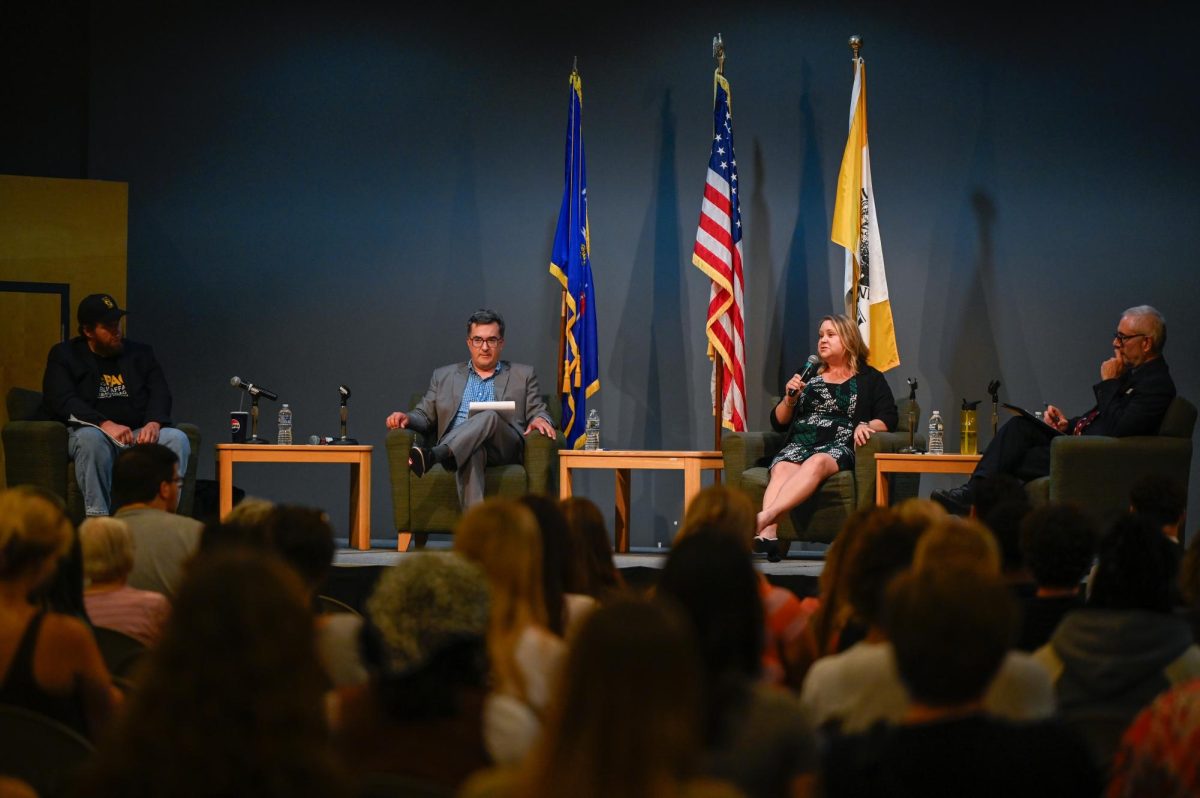UW Oshkosh has closed eight outdoor staircases across campus and reduced its salt usage this winter to help combat the effects of salt pollution in its second year partnering with the Wisconsin Salt Wise coalition.
The overuse of salt during the winter season can have negative environmental effects, especially on the nearby Fox River, Chemistry Professor Kevin Crawford said.
“It is well known that salting our roads and sidewalks ends up salting local lakes, rivers and groundwater,” he said. “The spring melt can cause salt levels to be so high in water bodies that fish spawning and growth can be affected. Also, Oshkosh drinking water comes from Lake Winnebago, so we should try to keep excess salt out of it.”
But oversalting also costs people more directly, too, Crawford said.
“It also costs taxpayers (and students and homeowners) money to salt — so using more salt than is needed is just wasting tax/tuition dollars,” he said. “The salt also decreases the life of cars, concrete and other infrastructure since it is corrosive.”
To help combat these factors, UWO has partnered with the Wisconsin Salt Wise for a second winter season, a “coalition of organizations working together to reduce salt pollution in our lakes, streams and drinking water.”
Partnering with Wisconsin Salt Wise required that staff involved in snow management attend a Wisconsin Salt Wise workshop, which are held across the state in the fall. These workshops help educate attendees on best salting practices.
A February 5 email announcement from Grounds and Auto Supervisor Joshua Ruplinger stated that this partnership will dramatically reduce salt use, which will naturally lessen the financial impact of infrastructure repair costs, as well as reduce the grounds department workload and improve student and staff safety.
“It takes one teaspoon of salt to pollute five gallons of water,” the email stated. “Many residents at UWO and in our great community, however, are unaware of the harmful effects that occur with over-salting.”
Ruplinger said that salter equipment is calibrated according to various data points to ensure optimate salt usage.
“Smart salting isn’t just about the amount of product used,” he said. “Factors such as timing of application, pre-snow event weather, current weather (sunny or cloudy), forecasted weather, pavement temps, etc. are all considered when applying a product. Salt spreaders are calibrated every fall before use to ensure we achieve the most efficient rate and use of our product.”
Currently, eight stairways around the Arts and Communication Center, Clow Social Science Center, Polk Library, Pollock House, North Scott Residence Hall, South Scott Residence Hall and two near Horizon Village Residence Hall will continue to be closed off until April 15.
Data points on labor and salt use on all the stairs over the past few winter seasons, as well as factors like accessibility, were assessed to determine which stairs to temporarily close.
Ruplinger said ensuring the safety of students, staff and faculty who walk throughout the campus while using less salt is also a priority.
“I believe the level of service we provide to campus for winter maintenance has not been affected,” he said. “We’re collecting the data from all reported slip and falls to pinpoint areas in need of adjustment. Yes, we’re using less salt but with more efficiency and effectiveness.”
Sustainability Director Brad Spanbauer said that being proactive can help reduce overall salt usage.
As one example, this includes removing snow when it falls and creating a snow map for winter months. That way, students and employees know what areas aren’t going to be plowed or salted and know not to walk on those areas.
“The more we can do to simply not put down much salt, or switch to brine (a mixture of rock salt and water) would be better,” he said. “Once the salt is down and dissolved into water and then our soils, and rivers and lakes — it is there forever. Desalination is extremely energetically expensive and costly in fiscal terms as well. We are very lucky to be on the Fox River on campus, but we must take care of it.”


